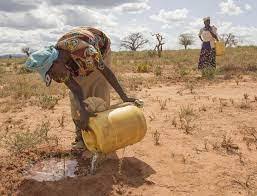
Over the past few decades, Africa has experienced significant shifts in its climate, largely driven by human activities.
These changes have led to frequent natural disasters, including floods, droughts, and extreme weather events. Such events severely impact access to essential resources like clean water, proper sanitation, and healthcare services, leaving populations more vulnerable to various diseases.
Both communicable and non-communicable diseases are on the rise due to these environmental challenges.
President of the National Safety Campaign, Daniel Asuku, I addressing the media in Accra, emphasized the importance of Africa’s forest reserves in mitigating the adverse effects of climate change.
He pointed out that African countries like the Democratic Republic of Congo, Guinea-Bissau, Ivory Coast, Togo, and Ghana possess significant forest reserves, which can play a crucial role in stabilizing the climate.
Mr. Asuku highlighted a critical issue: Africa’s relatively low industrial output compared to Western nations. “Unlike the West, Africa does not have a vast number of factories or industries that contribute to global emissions. So, why must Africa bear the brunt of a climate crisis it did not primarily cause?” he questioned.
Asuku also referenced the upcoming Climate Change Week, observed from the 14th to the 18th of October, particularly in Western countries like the United States.
He stressed the need for African nations to join global efforts to address climate change, as the continent faces its own unique risks. A significant concern raised was the ongoing illegal mining activities in Ghana, which are heavily polluting water bodies.
According to Asuku, if unchecked, this pollution will have long-lasting consequences for future generations.
He called on Ghana’s Environmental Protection Agency (EPA) to step up its efforts in implementing effective strategies to combat the health impacts of climate change. Strengthening such measures, he argued, is crucial to safeguarding the well-being of the population and preserving the country’s natural resources.
Asuku concluded by warning of the psychological toll that climate change could have on the African population. The increasing frequency of natural disasters, loss of property, and lives could lead to a rise in mental health disorders across the continent.
His message was clear: Africa must not only focus on protecting its environment but also on preparing for the long-term social and health impacts of climate change.
Linda Yeboah/ Ahotoronline.com



